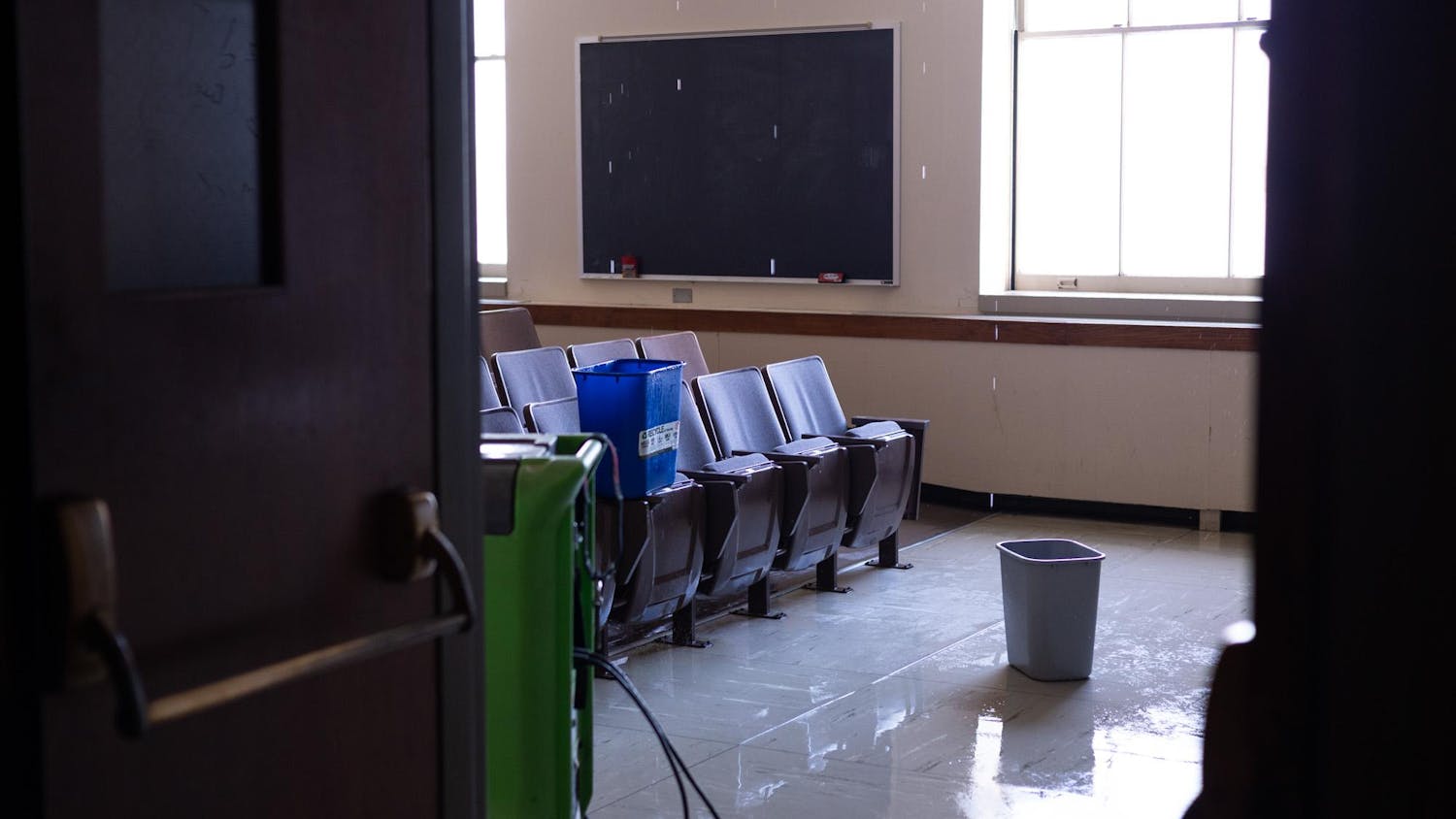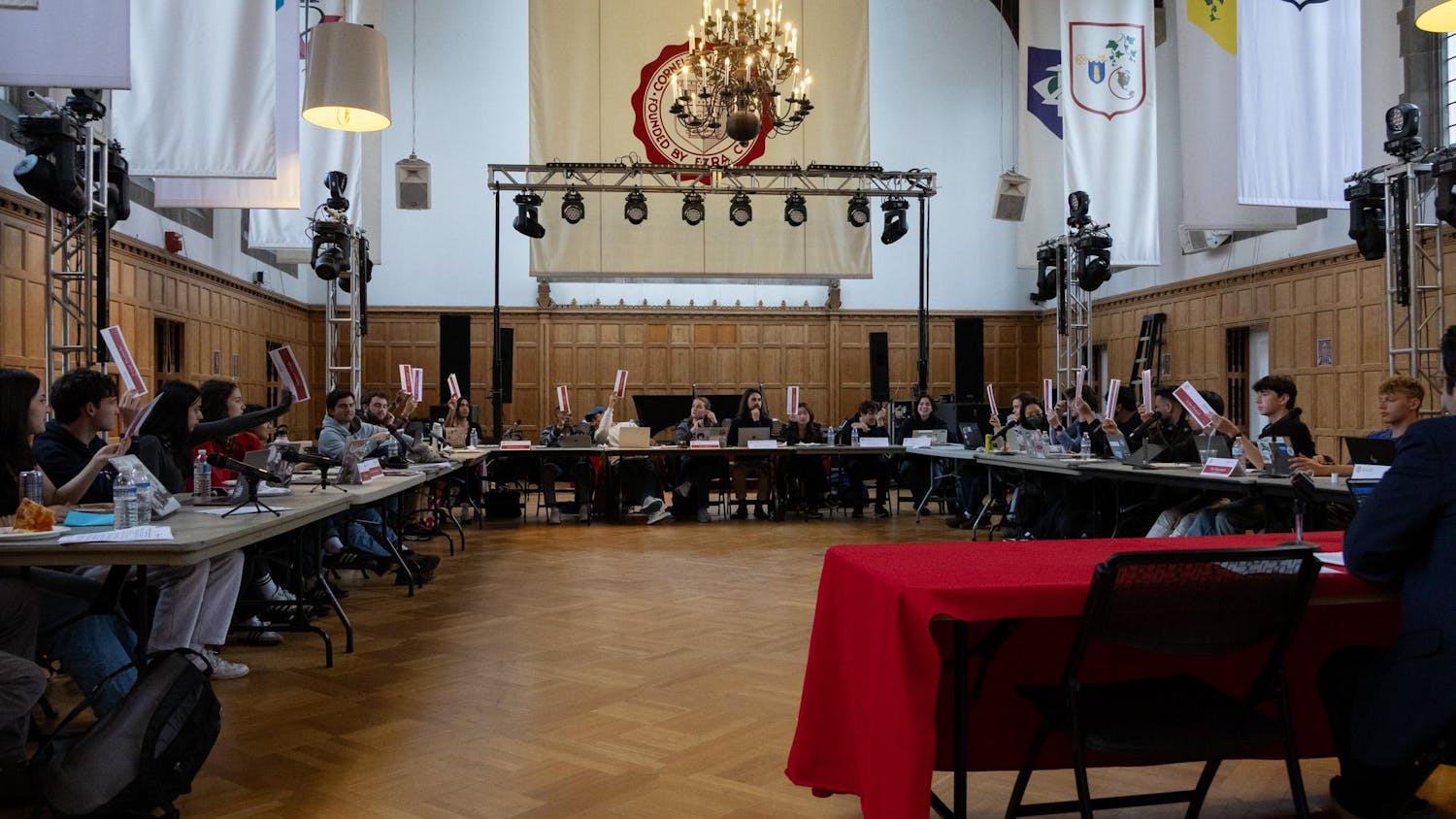The Trump administration has prioritized federal spending cuts early in President Donald Trump’s second term, led in part by cuts to science research funding at universities across the country. That includes Cornell University, which is reportedly facing more than $1 billion in federal contract cancellations.
In reaction to the federal government’s ongoing attacks on higher education and science research in particular, two second-year graduate students at Cornell, Emma Scales and Isako Di Tomassi, founded the McClintock Letters Initiative, aimed at bringing awareness on a local level to the precarity of science research funding under the current administration and the value that research can yield.
A Call to Action
The group started out of the pair’s desire to collaborate with other advancing science and policy groups across the country to help inform the general public about what scientists do with their research grants. Di Tomassi said the group’s members include scientists who write op-eds, letters to the editor or guest columns for their local hometown newspapers.
“The aim of this group is to share the science that we, as researchers, are doing with taxpayer money,” she said.
Di Tomassi was directly affected by the firing of federal probationary employees — her Ph.D advisor was “illegally terminated” from his position, according to her. She said that a post on NextDoor with over 250 comments of people having “political discourse” and “back and forth conversations” fueled her desire to bring awareness to the science that researchers do. Di Tomassi and Scales met with the advisor of the Cornell Advancing Science and Policy, professor Chris Schaffer, and outlined their goals for the initiative.
“It was the perfect mix of us happening to get in contact with several other graduate students’ science policy groups across the country while at the same time we were looking to form some kind of collaboration with the groups [amid] all this federal turmoil going on,” Di Tomassi said.
Through cold emailing and “other means,” Di Tomassi and Scales were able to unite 20 other graduate student-led science policy organizations from across the nation to join the cause, including from the University of Pennsylvania, Yale University, Johns Hopkins University and the University of California at Los Angeles, among others.
The two chose to name the initiative after Barbara McClintock — a Cornell graduate, genetics researcher and Nobel Prize winner. According to Di Tomassi and Scales, 580 people have signed up to send op-eds to their local newspapers through the group.

Di Tomassi and Scales say that a key to this initiative is publishing all of the pieces simultaneously on June 16 — McClintock’s birthday. They picked the date because McClintock did basic research, or discovery-based science, which Scales said is “more vulnerable to attack because its benefits are so long-term oriented.” The group wanted to highlight how crucial this type of research is.
“McClintock was a scientist that made this huge discovery in genetics that had larger applications several decades later,” Scales said, referring to McClintock discovering “jumping genes” or transposable elements. “Figuring out how stuff works biologically is a field of research that is less valued because its applications are not immediate.”
Di Tomassi and Scales explained that the decision to have people publish their op-eds in local newspapers rather than larger media outlets was “super intentional” because they wanted to reach a large audience of Americans.
“Local newspapers are a more authentic way to engage with people,” Scales said. “I think many Americans can really only be reached and spoken to through Americans and it also highlights how important local reporters are and why we need the press.”
Di Tomassi and Scales also emphasized that another reason behind the date and name of the project was that McClintock was a woman who “worked in a male-dominated field” so she “faced a lot of hardship.” Those difficulties, according to the pair, gave her an outside perspective which caused her to approach her work differently.
“Her story demonstrates why diversity is so important in science, especially discovery-based science, because we need people who think differently, who see the world differently,” Scales said.
Putting the Project in Motion
To help members of the initiative through the process of writing an op-ed, two webinars were held — one hosted by Dr. Katherine Xue, an assistant professor at the University of California, Irvine, and New York Times reporter Clay Risen. During these webinars, the hosts helped explain to writers how to effectively communicate with their audience and write strong pieces.
While the group has had success, Di Tomassi says it can be difficult to motivate people to actually participate, for any number of reasons.
“There are some people who hear about the project and say, ‘Yeah, this is a great idea, I can’t wait to tell other people about it,’” Di Tomassi said. “When I asked them if they’ll sign up, they’re just like, ‘I’ll tell other people about it,’ so we’ve seen varying levels of willingness to get involved.”
The two pointed out that while this project originated with graduate students, anyone participating in research, including undergraduate students, are encouraged to sign up and write to their local newspaper. Scales said she hopes to see undergrads sign up and write for the initiative with the guidance of their principal investigator or head of the lab.
“We would love to have undergrads participate since we are trying to show different perspectives and how impactful science research can be,” Scales said.
The two hope that through the initiative, Americans can understand what is at risk of being lost due to the federal cuts and the importance of scientific research.
“The truth of the moment is that funding for science is being drastically cut and science is going to look really different in the future,” Di Tomassi said. “We want people to write about how they are federally funded scientists and communicate how their work is impactful. It’s not about slamming Trump or taking a political side, it's about transparency and open communication.”
Zeinab Faraj is a reporter from The Cornell Daily Sun working on The Sun’s summer fellowship at The Ithaca Voice. This article was previously published in The Ithaca Voice.
Zeinab Faraj is a member of the class of 2028 in the College of Arts and Sciences. She is a features editor on the 143rd Editorial Board and was the assistant sports editor of the 143rd Editorial Board. You can reach her at zfaraj@cornellsun.com.











